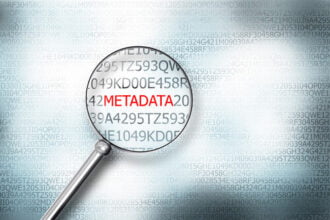As the quantity and diversity of relevant data grows within and outside of the enterprise, business users and IT are struggling to extract maximum value from this data. Fortunately, recent developments in big data technologies have significantly impacted the proficiency of contemporary analytics – the most profound of these involving the deployment of semantically enhanced Smart Data Lakes.
As the quantity and diversity of relevant data grows within and outside of the enterprise, business users and IT are struggling to extract maximum value from this data. Fortunately, recent developments in big data technologies have significantly impacted the proficiency of contemporary analytics – the most profound of these involving the deployment of semantically enhanced Smart Data Lakes.
Defined as centralized repositories, Smart Data Lakes enable organizations to analyze alldata assets with a specificity and speed that wasn’t previously available, revolutionizing the scope and focus of analytics. The value derived from this approach improves the analytics process and expedites conventional data preparation. By understanding data’s meaning prior to conducting analytics, users are able to vastly improve the type of analytics performed while pinpointing results for specific uses.
These new Smart Data Lakes go beyond the inflexible relational data warehouse and the unwieldy Hadoop-only data lake, disrupting the way IT and businesses alike manage and analyze data at enterprise scale with unprecedented flexibility, insight and speed.
The Benefit of Smart Data Lakes
Organizations truly reap the benefits of utilizing Smart Data Lakes, the primary being the newfound ability to incorporate an organization’s entire information assets with the notion of scalable semantics. With the concept of semantics at scale, an RDF graph query engine is able to analyze billions of triples (the atomic unit of data in the semantic web) in a short amount of time. The result? The ability to issue more queries, utilize more data and get results quicker, so that all enterprise data becomes relevant.
Smart Data Lake Use Case Examples
Today, many companies are applying semantic analytics tools with scalable graph-based database technology that provide a quick and easy path to query and analyze Data Lakes effectively.
Smart Data Lake solutions permit organizations to focus on the data that provides real business benefit. Currently, Smart Data Lakes are being adopted by pharma and financial institutions in use cases ranging from competitive intelligence and insider trading surveillance, to investigatory analytics and risk and compliance.
For instance, the regulatory reporting environment for financial institutions is evolving quickly, placing unprecedented demands on legacy processes and technology. Two areas where new smart data solutions are already adding value for banks include report preparation as well as data and technology.
Smart Data Lakes also improve the quality of your competitive intelligence by allowing subject-matter experts to curate, correct, and augment the data they know best.
For instance, top pharma companies are using Smart Data Lakes to proactively monitor the industry and receive alerts when key developments occur around drugs, companies, targets, disease areas, or geographies of interest. The alerts draw on private, public, and proprietary sources such as Citeline or Thomson Reuters to give senior decision-makers update that summarize drug development activities of interest to them. The speed, accuracy and completeness of data that is delivered to stakeholders can make all the difference between a blockbuster drug or an expensive failed experiment.
These Smart Data Lake industry use cases are only the beginning of a revolution in big data analysis. The unique attributes of Smart Data Lakes incorporating graph-based technologies and semantic standards are enabling the democratization of data science, data discovery and questions, promising answers to new questions to a far wider group of business users across the enterprise than ever before.
For more information on Smart Data Lakes, read Cambridge Semantics’ recent white paper.






